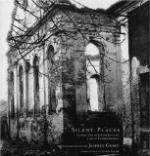“Oh, makwa, our little brother,” he said, “we come to you not in anger, nor in disrespect. We come to do you a kindness. Here is hunger and cold and enemies. In the Afterland is only happiness. So if we shoot you, oh makwa, our little brother, be not angry with us.”
He raised his trade-gun and pulled the trigger. A scattering volley broke from the other canoes and from the young men concealed in the bushes.
Now a trade-gun is a gun meant to trade. It is a section of what looks to be gas-pipe, bound by brass bands to a long, clumsy, wooden stick that extends within an inch of the end of the barrel. It is supposed to shoot ball or shot. As a matter of fact the marksman’s success depends more on his luck than his skill. Were it not for the Woods-Indian’s extraordinary powers of still-hunting so that he can generally approach very near to his game, his success would be small indeed.
With the shock of a dozen little bullets the bear went down, snarling and biting and scattering the sand, but was immediately afoot again. A black bear is not a particularly dangerous beast in ordinary circumstances—but occasionally he contributes quite a surprise to the experience of those who encounter him. This bear was badly wounded and cruelly frightened. His keen sense of smell informed him that the bushes contained enemies—how many he did not know, but they were concealed, unknown, and therefore dreadful. In front of him was something definite. Before the astonished Indians could back water, he had dashed into the shallows, and planted his paws on the bow of old Haukemah’s canoe.
A simultaneous cry of alarm burst from the other Indians. Some began frantically to recharge their muzzle-loading trade-guns; others dashed toward the spot as rapidly as paddle or moccasin could bring them. Haukemah himself roused valiantly to the defence, but was promptly upset and pounced upon by the enraged animal. A smother of spray enveloped the scene. Dick Herron rose suddenly to his feet and shot. The bear collapsed into the muddied water, his head doubled under, a thin stream of arterial blood stringing away down the current. Haukemah and his steersman rose dripping. A short pause of silence ensued.
“Well, you are a wonder!” ejaculated Sam Bolton at last. “How in thunder did you do that? I couldn’t make nothing out of that tangle—at least nothing clear enough to shoot at!”
“Luck,” replied Dick, briefly. “I took a snap shot, and happened to make it.”
“You ran mighty big chances of winning old Haukemah,” objected Sam.
“Sure! But I didn’t,” answered Dick, conclusively.
The Indians gathered to examine in respectful admiration. Dick’s bullet had passed from ear to ear. To them it was wonderful shooting, as indeed it would have been had it indicated anything but the most reckless luck. Haukemah was somewhat disgusted at the wetting of his finery, but the bear is a sacred animal, and even ceremonial dress and an explanation of the motives that demanded his death might not be sufficient to appease his divinity. The women’s squadron appeared about the bend, and added their cries of rejoicing to those of their husbands and brothers.




